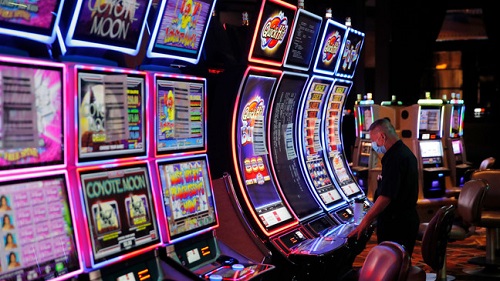America’s Casinos Won $53 Billion In 2021

Even though online and sports betting continue to rise in the United States, the American Gaming Association, the gambling industry’s national trade body, revealed year-end numbers indicating that in-person gambling remains the gambling industry’s primary source of income.
The $53 billion gained by casinos in 2019 was more than 21% greater than the previous highest year, which occurred before the coronavirus outbreak.
They also reveal that many gamblers have not been stopped from visiting a casino in person, even while highly infectious virus strains were on the rise during the epidemic. To attempt to restrict the spread of the virus, the casinos have spent millions on health and safety standards.
“These results are nothing short of remarkable,” Bill Miller, president and CEO of the association, said in a webinar to discuss the results. “The success of 2021 reflects our commitment to health and safety, and how Americans have welcomed gaming’s expansion across the country. Today’s industry is effectively meeting customers how and where they want to engage, whether at a casino or through mobile gaming.”
The figures do not include income from tribal casinos, which are reported separately. “Tribal leaders have equally shared with me that 2021 was their finest year on record,” Miller added.
Last year, 23 of the 33 states with commercial gambling, plus Washington, D.C., established revenue records.
Last year, in-person gamblers at casinos earned about $45 billion, up 6.6 percent from the previous year.
Sports betting’s remarkable expansion continued last year, with more than $57 billion placed legally on sports, up 165 percent from 2020. After winning bets and other expenditures were deducted, casinos and racetrack sportsbooks received about $4.3 billion in income. This is a 177 percent increase from 2020.
New commercial sports betting markets opened in Arizona, Connecticut, Louisiana, Maryland, South Dakota, Virginia, and Wyoming, which aided the industry.
In 2021, two additional online gambling markets, Connecticut and Michigan, will launch, helping the industry reach a new high of $3.7 billion in revenue.
For the year, total sports betting and online gambling income exceeded $8 billion, increasing 158 percent from 2020 and accounting for a record 15.1 percent of overall gambling revenue.
During the epidemic, the organization expressed worry over the sluggish resumption of business and leisure travel. Overall trip expenditure is down 20% from pre-pandemic levels, according to Miller.
“Business travel, meetings and events, and entertainment — all major income generators for many operators — have taken a long time to recover,” he added. “The effect of this is exacerbated by low foreign tourism to the United States, which is necessary for destination markets like Las Vegas to fully recover.” And casino attendance among the older, core clientele is just now returning to pre-pandemic levels.
“The entire resumption of tourism and huge events, which needs a secure health environment and an open economy,” he continued, “is still predicated on gaming’s ultimate recovery.”
Miller believes the casino business will have a bright future in 2022, noting the debut of mobile sports betting in Louisiana and New York, which has become the nation’s No. 1 sports betting market in only four weeks, with over $2 billion gambled.
He anticipates sports betting to go online in Ohio and Nebraska in 2022, while Maryland’s mobile debut is “in the works.”
Seven more states are exploring sports betting legislation, and four are studying internet gambling legislation, according to Miller.
He also said that physical casinos would open in Virginia this year, as well as many new racetrack casinos in Nebraska.






